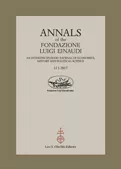The process of European integration is often framed in a teleological narrative, drawing a straight line from its early postwar steps to the contemporary European Union. Historical analysis, in contrast, shows a process made of many alternatives, twists and turns, trials and errors, and inherent tensions. When the European Community was founded in 1957, it was already a latecomer in a field densely populated with international organizations and cooperation institutions, heavily conditioned by the Cold War. It was only by confronting the economic and political challenges of the 1970s that the EC became the main forum of the integration of Western Europe. As the EC became more important, it also became more vulnerable. The essay argues for the need of paying a more specific attention to how European integration and, finally, the EU developed by responding to wider processes in global history (such as the Cold War, economic crises, and decolonisation); they were shaped by the dialectics between different international institutions and agreements, between national interests and internationalism.



